On December 4th, Dr. Tetsu Nakamura, a Japanese national and the head of Peace Japan Medical Services was shot and killed by gunmen while in a vehicle in Jalalabad in Nangarhar province.
“Sadly, Dr. Nakamura has passed away from the wounds he received in the armed attack this morning,” said Attaullah Khogyani, a spokesman for Nangarhar’s governor.
Peace Japan Medical Services said that Nakamura had been shot in the chest and succumbed to his wounds while undergoing surgery in hospital.
No group has claimed responsibility for the attack yet. The Taliban denied responsibility for the attack, saying they have “good relations” with organizations that “contribute to the reconstruction of Afghanistan.”
Five Afghans were also killed in the attack, including his bodyguards, driver and another passenger.
A spokesman for Afghan President Ashraf Ghani said the government strongly condemned “the heinous and cowardly attack” on Afghanistan’s “greatest friend”.
“Dr Nakamura dedicated all his life to change the lives of Afghans, working on water management, dams and improving traditional agriculture,” Sediq Sediqqi wrote on Twitter.
Nakamura headed the Japanese charity, Peace Medical Services, in Nangarhar since 2008. He came to Afghanistan after a Japanese colleague, Kazuya Ito, was abducted and killed.
Tetsu Nakamura died at 73 years of age, he was born in Fukuoka on September 15th, 1946. After graduating as a doctor, he moved to Pakistan in 1984 to treat patients with leprosy.
In 1986, he headed to Afghanistan, where he opened his first clinic in a remote village in Nangarhar and established a non-governmental organisation, Peace Japan Medical Services.
Beginning in 1991, Nakamura opened 3 clinics to provide medical service in the mountainous eastern region of the country.
Starting from 2000, a drought hit the region. A consequence of this drought was the multiplications of diseases due to malnutrition and lack of water. Nakamura stated about this situation: “One irrigation canal will do more good than 100 doctors!”.
In 2001, Dr. Nakamura established the “Afghan Fund for Life”. This fund allowed Dr. Nakamura’s team to provide food for displaced Afghans who had flooded into the nation’s capital of Kabul to escape war and drought. The team continued to deliver food even while the U.S. air strikes were going on, and by February 2002 they had succeeded in supplying food to 150,000 Afghans. The fund also made it possible to launch the “Green Ground Project”.
Starting from 2003, Nakamura started building an irrigation canal in Khiwa district of Nangarhar Province, the Marwarid Canal. The canal gets water from Kuner River, and has a length of 25.5 km.
As of 2016, Nakamura has built or restored 8 additional canals, irrigating 16.000 hectares and supporting the livelihood of 600.000 people in the Gamberi Desert region.
Nakamura maintained that weapons and tanks wouldn’t solve any problems and that only the revival of farming would restore Afghanistan.
At its peak, PMS, prior to providing irrigation, operated 10 clinics providing help for leprosy patients and refugees amongst others.
In 2003, Nakamura won the Philippines’ Ramon Magsaysay Award — often called Asia’s Nobel Prize — for peace and international understanding.
In 2014, he told the Japan Times that he had to take a different route to work everyday to ensure his safety.
“I’ve tried to make no enemies… The best way is to befriend everyone, even if that makes people think I lack principles. Because the people are the only thing I can depend on there,” he said. “And that’s surprisingly more effective than carrying a gun.”
In October 2019 he was given a citizenship certificate as an honorary citizen of Afghanistan, by Afghan President Ashraf Ghani in Kabul.
He had no scandals surrounding him and there were no doubts of his integrity.
Japan Peace Medical Services, also known as Peshawar-Kai is an aid organization, and its motto is a citation from Tetsu Nakamura, who founded it.
“We choose not to go to places where everyone is willing to go, but rather to places where help is desperately needed and no one else is willing to go.”
The organization is quite proud of Dr. Nakamura and there’s even a 50-minute documentary on his efforts.
Based in the PMS Hospital in Peshawar, Pakistan, the Peace (Japan) Medical Service, opened two clinics in the mountainous area in Pakistan, and three clinics in the mountainous area of eastern Afghanistan. At one point, the PMS operated a total of 10 clinics providing medical care for leprosy patients, Afghan refugees and underprivileged people, and also conducted routine mobile field clinics.
After the Afghan war broke out in 2001, PMS was forced to close its clinics, one after another. At present, only one clinic in Dara-e-Noor remains.
Currently, the PMS provides medical care to approximately 50,000 patients each year. Treating patients with Leprosy remains a big challenge and the PMS has been hindered in tackling this problem by the worsening security situation.
However, because the continuing conflict has led many aid organizations to withdraw from the region, the relative importance of the role that PMS clinic plays in the area continues to grow.
In July,2009, because of the deteriorating security situation, the PMS handed over its base hospital in Peshawar to a local organization, and shifted its home base to Jalalabad in eastern Afghanistan.
The PMS launched planning of the Green Ground Project in 2002, following the emergency food delivery campaign in 2001.
The project’s mission is to rehabilitate rural villages devastated by the drought. Most Afghans depend on farming for their livelihood. Consequently, the revival of agricultural production is a life-and-death issue for Afghanistan, which profoundly impacts the health and security situation in the country.
The Marwarid Irrigation Canal Construction Project was launched in March, 2003. The project drew water from the Kunar River system. This 25km-long canal, opened in March, 2010, is equipped with 13 regulating reservoirs and extends to the Gamberi Desert. It transmits 250,000 to 400,000 cubic meters of water a day and irrigates 3,000ha of land.
In 2002, the PMS launched a pilot farm in Dara-e-Noor with the aim of reviving self-sufficient communities.
After contemplating on the pilot farm’s future, the PMS moved it to Gamberi Desert situated at the end of Marwarid Canal in 2009. So far, 50ha out of the 230ha land in total has been cultivated. In addition to grains, potatoes and other vegetables, 250,000 orchard trees such as pomegranates, oranges, and peaches, have been planted. It is expected these fruits will be shipped out to the markets in the near future.
It is unclear who carried out the attack on Tetsu Nakamura, but in a recent report by Human Rights Watch, the organization claimed that CIA-trained Afghan paramilitary units carried out frequent war crimes, under the pretext that the civilians were assisting the Taliban, whether willingly or were forced to do so made no difference.
MORE ON THE TOPIC:




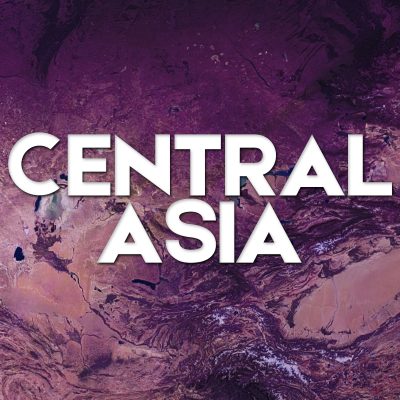
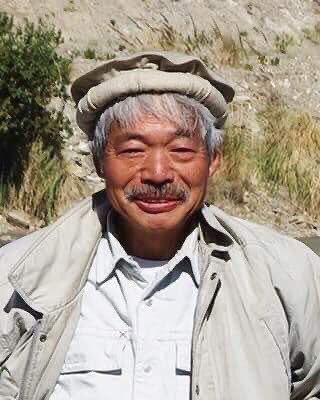
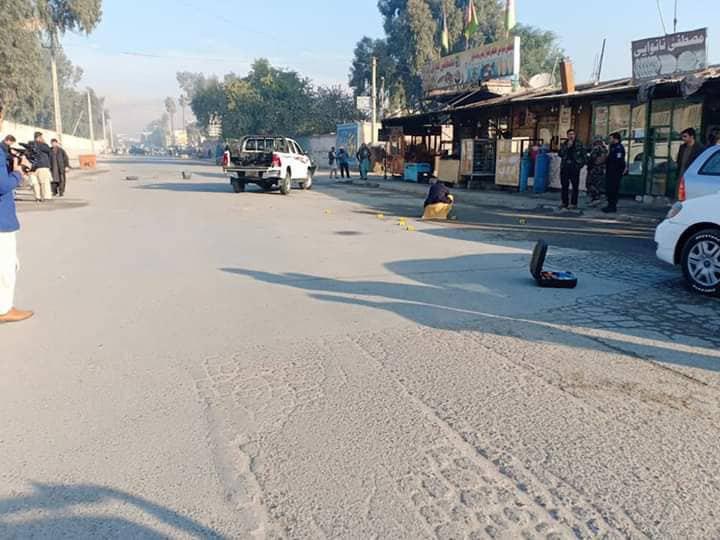

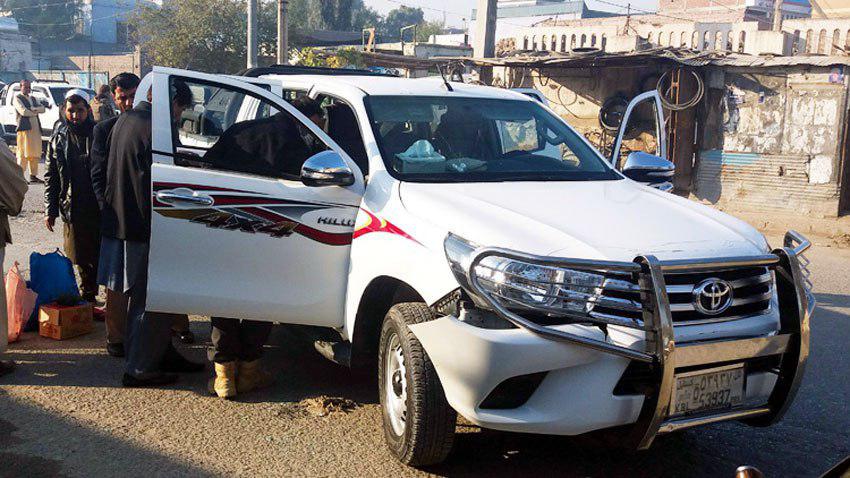
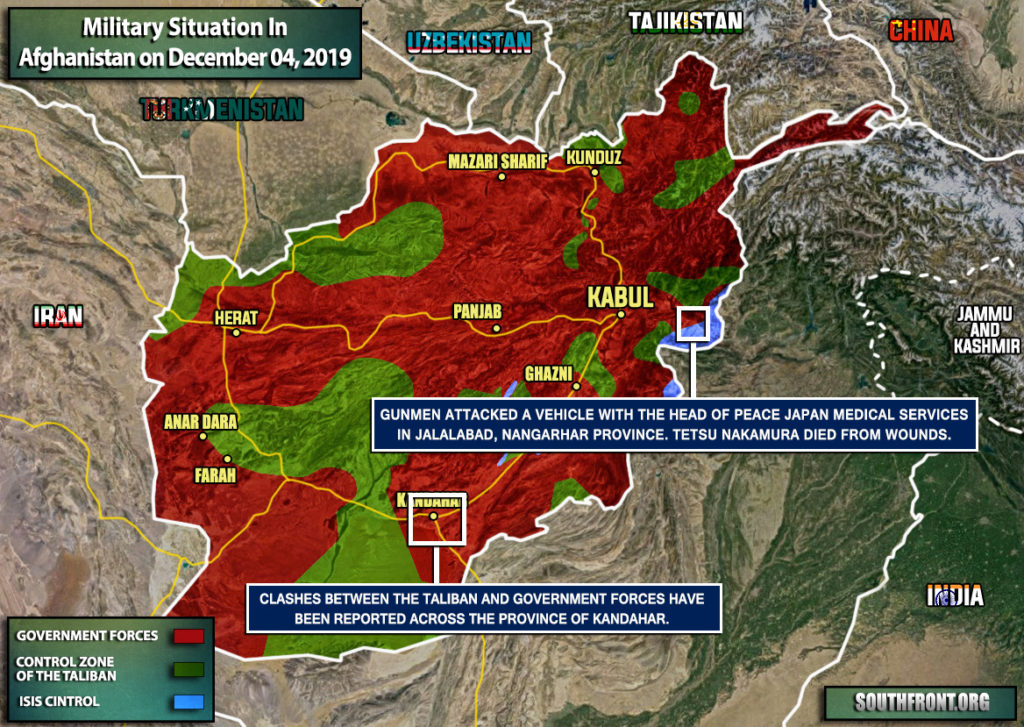
Not bulletproof glass? Does a standard ak have a 3 round burst and if so, can it be that the three rounds are close to each other? The tissue box was special, meriting a controlled burst in an ambush scenario. lol
never heard of him before, but wow, what a man, what accomplishments. rest in peace.
that’s a tight group for a random attack. who would put a hit on someone like that?